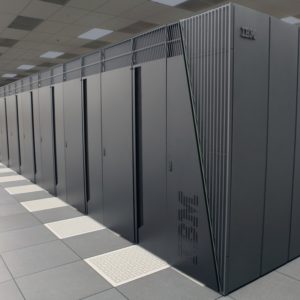After artificial intelligence (AI), machine learning today is the one that’s generating a buzz across industries and technology. It’s becoming a household name, yet many are still clueless about it and its role in our personal and professional lives. Hence, to have a better understanding of machine learning, here’s a quick rundown of what you must know about it as a job seeker.
Definition
As defined by TechEmergence, a resource for business applications of AI, machine learning is the science of getting computers to learn and act as humans do. Likewise, it aims to improve their learning over time by feeding them data in the form of observations and real-world interactions. In fact, it’s a subset of AI, which lets computers do tasks such as recognition, diagnosis, planning, robotics control, and prediction without specific programming.
Machine Learning Jobs: Data Analyst vs. Machine Learning Engineer
While they belong to the same field, it’s crucial to understand the differences between them. As a data analyst, your task will be to study details to tell a story and produce actionable insights, says Udacity. Hence, your focus will be information dissemination through charts, models, and visualizations with humans as your audience.
In contrast, a machine learning engineer’s final output is a working software with the other components that run alone with minimal human supervision as the audience. In particular, machines make decisions that affect how the product or service will behave.
Top Machine Learning Skills to Gain
If you’re up to the challenge and have an interest in working as a machine learning engineer, here’s a list of must-have skills on a resume from Medium and ITCareerFinder.
Basic Skills
For starters, skills in math, data science, and software engineering are necessary. Otherwise, these domains will help you test your mettle.
- Statistics and Probability
- Data Modeling
- Linear Algebra
- Calculus
Soft Skills
After the basics and before the technical parts rather, you’ll need these soft skills to survive and stay long in this career.
- Ability to Learn New Skills
- Time Management
- Business/Domain Knowledge
- Communication
- Rapid Prototyping
Programming Skills
Just as with any advanced technology, expect, at length, to create dynamic algorithms in the field. In addition, machine learning will test your programming and software development skills that focus on analysis and design basics.
- Fundamentals of Programming and Computer Science
- Software Design
- Applying ML Libraries and Algorithms
Programming Languages
Machine learning libraries have many programming languages. Therefore, choose only what you’ll master. However, it’s wise to know each and their pros and cons.
- C/C++
- R
- Python
- Java
Industries Influenced by Machine Learning
Below is a list of industries from SAS. In the same way, these use or are planning to use machine learning-enhanced computer systems to work better or to gain an edge over their rivals.
- Financial Services
- Government
- Health Care
- Marketing and Sales
- Oil and Gas
- Transportation
So far, it’s time to put your advanced computer skills to use! In particular, as industries strive for innovation and automation, the demand for experts and engineers will rise. Besides, machine learning will be a definite part of the future. Therefore, if you got what it takes to act on it, you can be a part of that future, too.
Sources: TechEmergence | Udacity | Medium | ITCareerFinder | DZone | SAS
Photo from Pexels
Related Articles:
How Top Resume Writing Services Help IT Professionals Land a Job
10 Tips to Writing a Top Resume for Information Technology Careers






